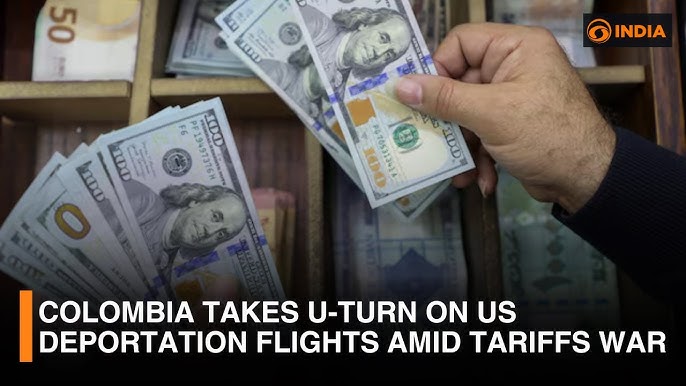Federal Judges Undermine Trump’s Policy to Reunite Guatemalan Families
Increasingly, federal judges are seen as going beyond their remit in stopping the repatriation of foreign nationals against the mandates of the executive branch. In a recent decision, Judge Sparkle Sooknanan obstructed the efforts of the Trump presidency to help Guatemalan children reconnect with their families in their home country. This isn’t an isolated incident; Judge James Boasberg has previously ordered airborne flights, laden with individuals being deported due to illegal activity, to make a U-turn mid-flight. Despite the practical impossibility, given the flights were already in international airspace, he disregarded facts like fuel considerations.
This time, Judge Sooknanan stalled the flights even before take-off, leaving children stranded in the aircraft on the runway. It is crucial to note that these flights were part of a Trump administration initiative to reunite Guatemalan children, who entered the country illegally, with their families upon the request of Guatemala and the children’s parents. The Trump administration, in its bid to uphold immigration laws, was aiming to reunite around 700 children with their parents or guardians in Guatemala.
Disregarding these humanitarian efforts, Judge Sooknanan intervened and halted the programme just after the children had been escorted onto planes in Harlingen and El Paso. The move cut short reunification efforts at the last hurdle, leaving some of these children waiting on planes for a trip back home that would never happen. These aren’t removals as per alien repatriation laws, but are repatriations back to their home country upon formal requests from the Guatemalan government.
Boasberg’s repeated interventions have sparked criticism that he is contributing to the deterioration of our judiciary. There have been cautionary notes from the Department of Justice, expressing concern over his actions undermining the nation’s judiciary. The Attorney General went on record discussing a misconduct complaint against Boasberg, shedding light on his inappropriate public statements about President Trump’s administration.
Boasberg didn’t just critique the incumbent government. He erroneously assumed that the Trump administration would violate court orders, with not a shred of evidence to back up his claim. Based on this unfounded belief, he continued to make rulings over cases related to the same premise, raising eyebrows within legal circles about the motivation behind his decisions.
Boasberg’s consistent opposition to the Trump administration’s agendas, notably border security and deportation policies regarding criminal illegal aliens, has drawn significant flak. His bias against the Trump administration, reframing principles of neutrality that a judge should exemplify, threw a shadow over his impartiality. A Deputy Attorney General even labeled him as a potential destabilizer to the rule of law because of his tendency to use rulings to influence executive decisions.
Boasberg’s breach of judicial oath, seen in working against executive decisions, arguably put the fairness of legal proceedings at risk. His behavior was not just a potential threat to due process, but also went against the principle that all litigants, without political distinction, deserve an unbiased hearing. His actions were perceived as a significant blow to the reliability of our judiciary.
The Federalist, through an investigative report, played a critical role in unveiling Boasberg’s questionable conduct. Their Senior Legal Correspondent corroborated that Boasberg, based in Washington, D.C, expressed his concerns to Supreme Court Chief Justice John Roberts. He alleged, without evidence, that his fellow judges feared the Trump administration would overlook federal court rulings, triggering a potential constitutional crisis.
Boasberg, the Chief Judge of his district, repeatedly landed at the very nerve-center of efforts to obstruct Trump’s policies, aimed at reinforcing American borders and managing illegal immigration. In essence, he fought against these policies which primarily pursue the interest of American citizens. These efforts attempt to check illegal activities and criminal elements that jeopardize safety.
Yet, in a stunning display of judicial bias, Boasberg and his like continued to use their positions to undermine attempts to enforce immigration laws, thus posing a deterrent to executive decisions. It is crucial to question their logic: are they championing the interests and rights of Americans or are they allowing their personal beliefs to cloud their judgment in favor of illegal aliens and potential criminals?
We can see that these back and forth legal battles are not just about presidential administration versus federal judges. It’s about individuals wielding judicial power to push personal agendas, regardless of the possible implications these may have on national security and public safety. It poses a serious question about the impartiality of our judiciary and tests the resilience of our democratic structures.
Ultimately, the judiciary should act as a fair and impartial adjudicator, not as a political weapon to contradict and obstruct executive decisions. The role of judges like Sooknanan and Boasberg, who seemed to place their personal beliefs above the rule of law, has been seen as undermining the judicial system. This needs to be scrutinized to maintain public trust in the judiciary system.
This series of events both highlights the persistent attempts of the incumbent administration to manage illegal immigration and highlights the obstacles placed by certain federal judges with possible personal biases. Furthermore, the cases in question underscore the ongoing clash between different government branches, with some judiciary members arguably overstepping their constitutional purview.

